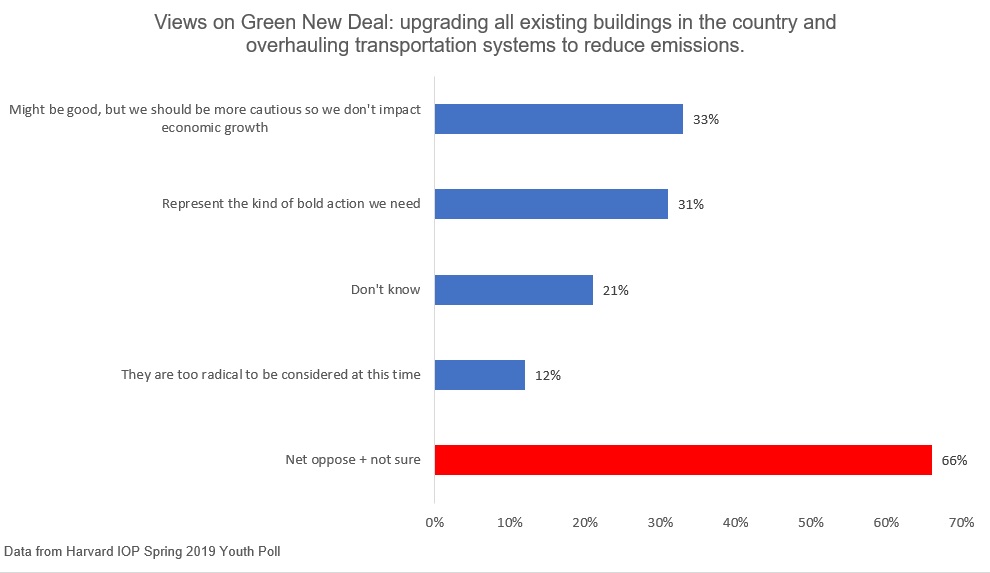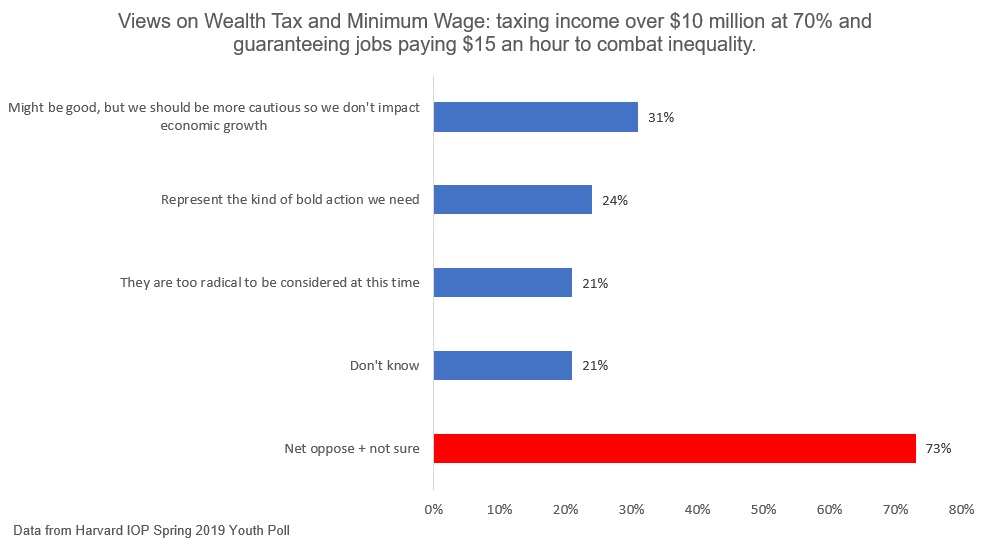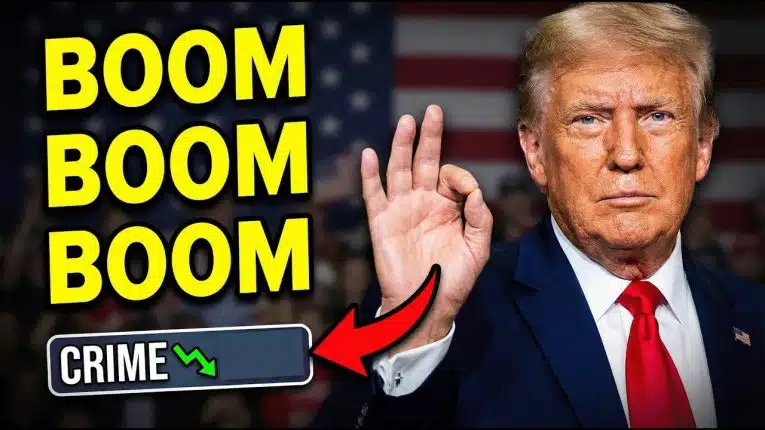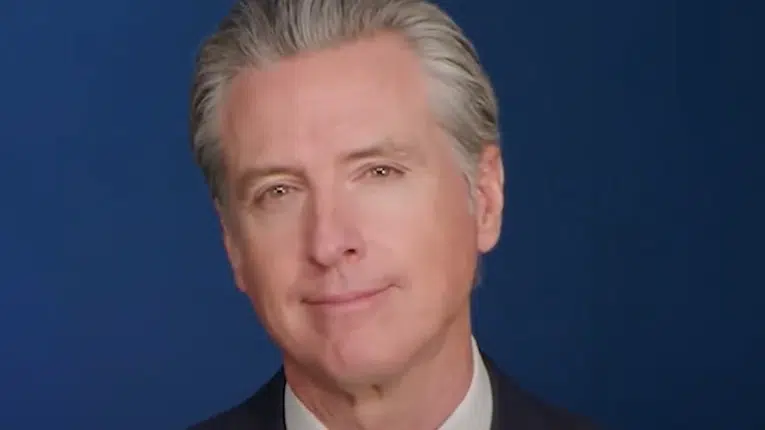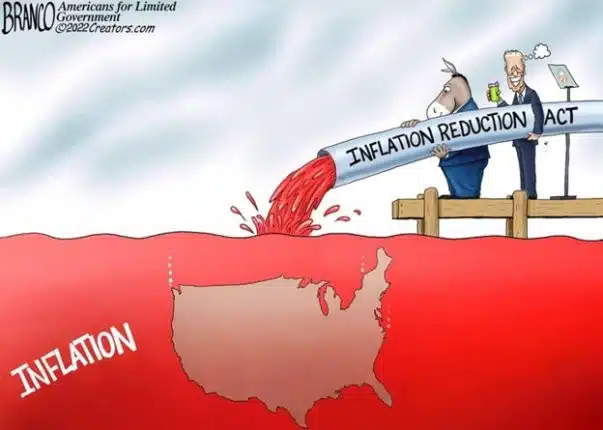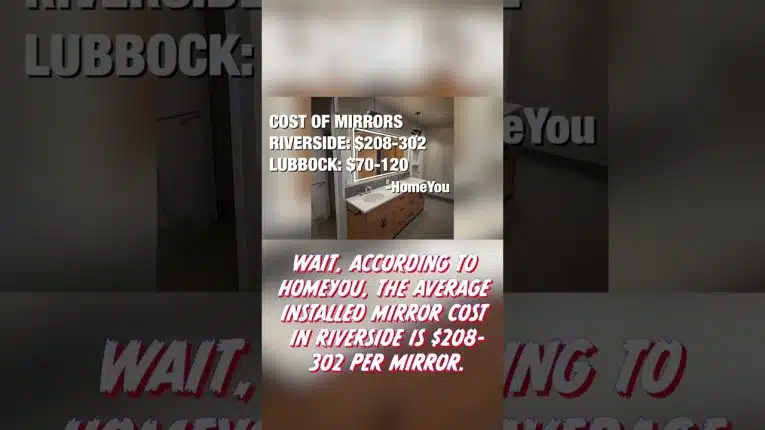By Bill Wilson and Manzanita Miller
The Atlantic article last week on young voters painted a gloomy picture for conservatives, claiming that a majority of Generation Z — young people born after the mid-nineties — hold far-left views in alignment with those of democratic socialist Alexandria Ocasio-Cortez. The authors rely on the 2019 Harvard Youth Poll to make the claim that Generation Z surpasses the Millennial generation in their appetite for socialism, and that young people are driving the American policy agenda to the left.
The data, which the Institute of Politics at Harvard generously provided to the public, blatantly contradicts these claims. Instead, the data shows an increasing share of young Americans identify as moderates, liberal identity has been declining steadily for over ten years, and young people largely reject Ocasio-Cortez’s key proposals, including her ‘Green New Deal’ and 70 percent income tax plan. In reality, a majority of Generation Zers are political moderates who support America First policies on issues like illegal immigration and foreign wars, and are critical of big-government policies that they fear could negatively impact economic growth. What’s more, the share of young people today who identify as liberals has declined by a staggering 41 percent since 2008, while the share of young moderates has more than doubled over the past 11 years, according to publicly available Harvard IOP polls.
Let’s start with the one of the far-left’s most prized proposals: radically overhauling transportation systems and buildings to address climate change. This is a no-brainer, given everything we’ve seen in the media lately, we all know young people are the champions of combating climate change through draconian government intervention without a second thought, right? Wrong. Despite the pollsters going so far as to label the proposals plucked directly from Ocasio-Cortez’s Green New Deal as ‘the bold action we need’, less than a third of young people agreed with them (31 percent). A full 33 percent said the ideas might be good but were worried about the economic impact, 21 percent didn’t know, and 12 percent stated the ideas were too radical to even consider. A combined 66 percent of young people either didn’t support the proposals, had reservations, or weren’t sure how they felt about them, as shown below. That’s a pretty resounding rejection of the Green New Deal from a constituency that the mainstream media would have us believe is enthusiastically driving the agenda.
What about income inequality, another policy area where socialist champions like Ocasio-Cortez allegedly lead the nation’s youth in demanding wealth redistribution and government intervention? Surely, young people can at least embrace the socialist ideal of levying a 70 percent income tax on the highest earners, and enacting a $15 minimum wage. Not by a long shot. The Harvard poll gave young people every opportunity to enthusiastically embrace these proposals, once again labeling them as ‘bold action’, but less than a quarter of young people agreed. Just 24 percent embraced the proposals, while 31 percent expressed concerns about, shocker, the economic impact. Meanwhile 21 percent outright rejected a 70 percent income tax and $15 minimum wage, and an equal share admitted they weren’t sure what to think. A net 73 percent of young people either had reservations, outright rejected, or weren’t sure about these two core elements of leftist economic solutions.
All rright, so maybe Ocasio-Cortez’s “bold” proposals are a little ahead of her time even for the vast majority of 18 to 29-year-old Americans, but can we at least admit that over time, young voters are shifting to left? Again, no. While Millennials — those born between 1981 and 1996 — were arguably the most progressive generation, these voters are now in their mid-twenties to mid-thirties. As the Millennial population has aged, their views have remained relatively liberal compared to older generations, but the views of Generation Z are stalling, if not outright reversing, the liberal youth cycle.
Look no further than the Harvard Youth Poll from 2008 which showed a full 46 percent of young people considered themselves liberal or liberal-leaning, while 19 percent considered themselves moderate, and 35 percent considered themselves conservative or conservative-leaning. Keep in mind a majority of those respondents are now in their thirties, and compare those numbers to the latest Harvard Youth Poll.
Just 27 percent of 18 to 29-year-olds now consider themselves liberal — a 41 percent decline in liberal affiliation since 2008. Meanwhile, the share of young people who now consider themselves moderate has more than doubled, from 19 percent in 2008 to 45 percent in 2019. That is an increase of 58 percent. Read that again: the share of young people who say they are moderate has more than doubled since 2008, and the share of young people who say they are liberal has declined by well over a third over the same time period. The share of young people who say they are conservative has declined modestly, from 35 percent in 2008 to 26 percent in 2019.
Conclusion? No, Generation Zers are not more liberal than Millennials were. In fact, today’s 18 to 29-year-olds are significantly more likely to identify as moderates than in the past, and Ocasio-Cortez’s most radical proposals on income inequality and the Green New Deal earn abysmal support from young Americans. The overwhelming majority of Generation Zers reject radicalism, and express economic concerns when presented with socialist policies, despite pollsters using terms like “bold” to goad them into agreement.
Bill Wilson is the President of the Market Research Foundation and a former board member and former President of Americans for Limited Government. Manzanita Miller is an associate analyst with the Market Research Foundation.


